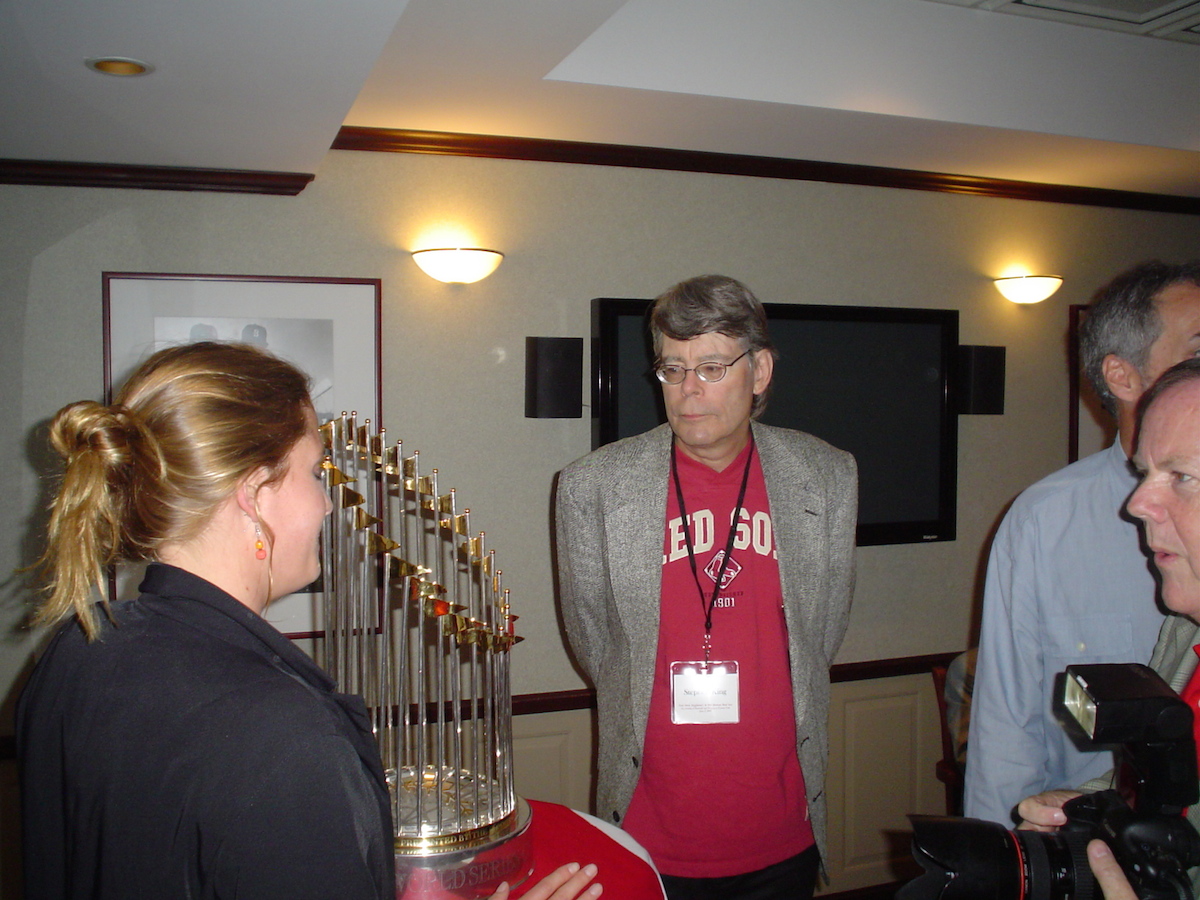Stephen King Hates the New Protective Netting at Fenway Park

Photo by Michael Femia on Flickr/Creative Commons
Count Stephen King among those who disapprove of the new protective netting at Fenway Park.
A longtime fan of Red Sox, which have more closely resembled the stuff of his horror novels in recent years, the author has been a season-ticket holder “since the days when Wade Boggs was playing third base.” King took to the opinion page of the Globe to voice his frustration with the new safety measures, comparing them to “paying good money to sit in a cage.”
“There are questions inherent in the decision to net, and I think they’re bigger than baseball,” King wrote. “Like when does protection become overprotection? Is the safety of a fan at a public event like a baseball game the responsibility of the organization putting on that event? (According to the back of every MLB ticket sold, the fan is responsible.) When do safety precautions begin to steal away the pure joy of being there?”
Following a rash of fan injuries at Fenway Park last season, Major League Baseball recommended protective netting in all 30 of its ballparks.
“Major League Baseball prides itself on providing fans in our ballparks with unparalleled proximity and access to our players and the game taking place on the field,” Commissioner Robert Manfred said in a statement. “At the same time, it is important that fans have the option to sit behind protective netting or in other areas of the ballpark where foul balls and batts are less likely to enter.”
Still, King isn’t convinced.
“I understand the Red Sox bear some responsibility, but I also accept my responsibility to take care of myself—to the best of my ability—when I’m at the ballpark,” King went on. “Is there a certain element of risk? Yes. Is the risk perhaps increased by being only two rows from the playing field? Yes again. But you can see everything from that vantage, not just the players but the breathtaking green of the grass, the bright white of the uniforms, the sky as it goes from blue in the top of the first to black by the bottom of the sixth.”
You can read the rest of King’s op-ed here.

